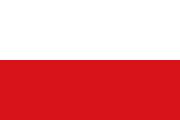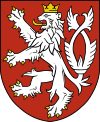Bohemia
From Kaiserreich
| ||||
| Official Languages | Czech, German | |||
| Capital | Prague | |||
| Head of State | King Ottokar III is represented by Felix zu Schwarzenberg | |||
| Head of Government | Jan Syrov | |||
| Establishment - 1867 Ausgleich | May 29 1867 | |||
| - Autonomous Region | 1927 | |||
| Government | Parliamentary monarchy, secondary constituent state of Austria-Hungary under the control of the Austrian Crown | |||
| Currency | Austro-Hungarian krone | |||
| Area | 78 866 km² | |||
| Population | About 11 millions | |||
Contents |
History
Bohemia become part of Austrian Empire in 1526. At the end of the eighteenth century, the Czech national revivalist movement, in cooperation with part of the Bohemian aristocracy, started a campaign for restoration of the kingdom's historic rights, whereby the Czech language was to replace German as the language of administration. During the Revolution of 1848, many Czech nationalists called for autonomy for Bohemia from Habsburg Austria, but the revolutionaries were defeated.
In 1861, a new elected Bohemian Diet was established. The renewal of the old Bohemian Crown became the official political program of both Czech liberal politicians and the majority of Bohemian aristocracy, while parties representing the German minority and small part of the aristocracy proclaimed their loyalty to the centralistic Constitution. After the creation of the Dual Monarchy in the Ausgleich of 1867, an attempt of the Czechs to create a tripartite monarchy (Austria-Hungary-Bohemia) failed in 1871.
After the Weltkrieg Czech nationalism was on the rise and the tension between the ethnic Germans and the Czechs led to violent riots, almost bringing the Empire on the verge of a civil war. The German mediation in the renegotiations of the Ausgleich in 1927 lead to the concession of autonomy to Bohemia as a constituent part of Austria-Hungary, even if under the control of the Austrian Crown and not on the same level as Hungary.
Politics
Bohemia is a parliamentary monarchy, as a constituent part of Austria-Hungary. King Ottokar III is represented by Governor Felix zu Schwarzenberg and the government is led by Minister-President Jan Syrov.
The future of Bohemia is uncertain as the Ausgleich of 1937 is approaching and Austria will probably try to assert its authority. However, nothing is certain and in case of a struggle of power between Austria and Hungary, Bohemia might be able to extend its control over the lands of the Slovaks.
Military
Bohemia is under the military authority of Hungary and has only a small poorly-trained army composed of two militias used only for the repression of protests.
Foreign relations
Under the political, economic and military authority of Austria.
Very good relations with Austria, Hungary, Germany and Russia.
Friendly relations with Poland, White Ruthenia and United Baltic Duchy.


